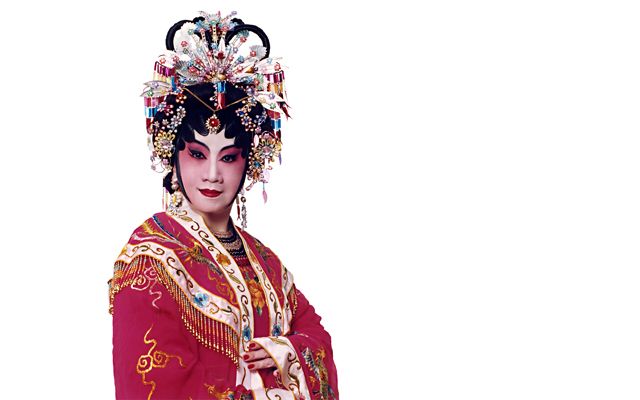Singapore opera doyenne Joanna Wong tells us about her journey in Chinese wayang and how she’s not letting the curtain come down on this cultural treasure
A common sight in Singapore during the 1980s, particularly during Seventh Month festivities, Chinese opera performances were a distinct part of family entertainment during that era. Affectionately known as Chinese wayang to some, these spectacles of colour, sound and culture drew grannies, adults and young children alike – never mind if they didn’t understand a word of what the performers were saying.
The whole carnival feel of the experience – there were vendors peddling all manner of snacks and toys nearby – made an evening at the opera such a thrill, whether you caught it at a theatre, a community club or an open-air space, where characters were played out on a makeshift wooden stage.
Alas, three decades later, Chinese opera has become an “endangered” art form. With dwindling audiences and even fewer youths expressing interest in it, this intrinsic part of Chinese heritage is on the verge of becoming the next casualty in a city consumed by globalism.
Joanna Wong Quee Heng, a veteran of Chinese opera in Singapore who rose to fame in 1968 after her debut performance in a modern adaptation of Madam White Snake, has personally witnessed the changing face of Chinese opera here over the decades.
The science graduate and former registrar of the National University of Singapore founded the Chinese Theatre Circle with her husband Leslie Wong in 1981 to preserve Cantonese opera in Singapore. That same year, she received a Cultural Medallion, the first ever awarded to a Chinese opera artiste. To mark her 60th year in Chinese opera, the 74-year-old recently released her biography, Joanna Wong: An Indomitable Life, An Operatic Legacy.
Wong tells Melissa Gail Sing about her journey in Chinese opera and how she’s not letting the curtain come down on this cultural treasure.
Singapore Tatler: How has Chinese opera changed your life?
Joanna Wong: If I had not gone into Chinese opera, I am sure my life would have been quite different. The past 60 years have not been easy, as opera has kept me very busy and with hardly any time for leisure. My proudest moment was performing before an exceptionally enthusiastic and appreciative audience in Berlin and several other foreign countries. There have been low points too, like sometime around 1993 when we almost had to give up Cantonese opera because of a lack of musicians.
Singapore Tatler: Describe Chinese opera...what it means to you, and what you enjoy about it?
Joanna Wong: Chinese opera is "Total Theatre". It is a harmonious combination of music, song, dialogue, drama, literature, visual art, dance, mime, martial art, and acrobatic display. I enjoy Chinese opera because it is such a wholesome display of artistic elements.
As a toddler, my aunt would bring me to the theatres in amusement parks to watch Cantonese opera. I would be mesmerised by the beautiful costumes worn by the actors and the lovely melodies of the operas. Then at the age of 14, I decided to take up Cantonese opera. In those days in Penang, my hometown, there were no formal Chinese opera teachers, so I learnt the art the hard way, by listening to records and radio broadcasts of Cantonese opera songs. I also watched Chinese opera stage performances and films. I did not have a proper teacher until the late 1960s. From then on, I would seize every opportunity to learn about the intricacies of Chinese opera from professionals and masters of the art form whenever overseas troupes were in Singapore.
I began performing professionally in a Singapore opera troupe in 1967 and have performed at least 50 full-length Cantonese operas, many of which have been staged over and over again. For example, Chinese Theatre Circle's signature opera A Costly Impulse has been staged a dozen times in Singapore as well as in Cairo, Romania, Brazil, Beijing, Guangzhou and Hong Kong. My favourite operas are Woman Emperor Wu Ze Tian and Women Warriors of the Yang Family.


